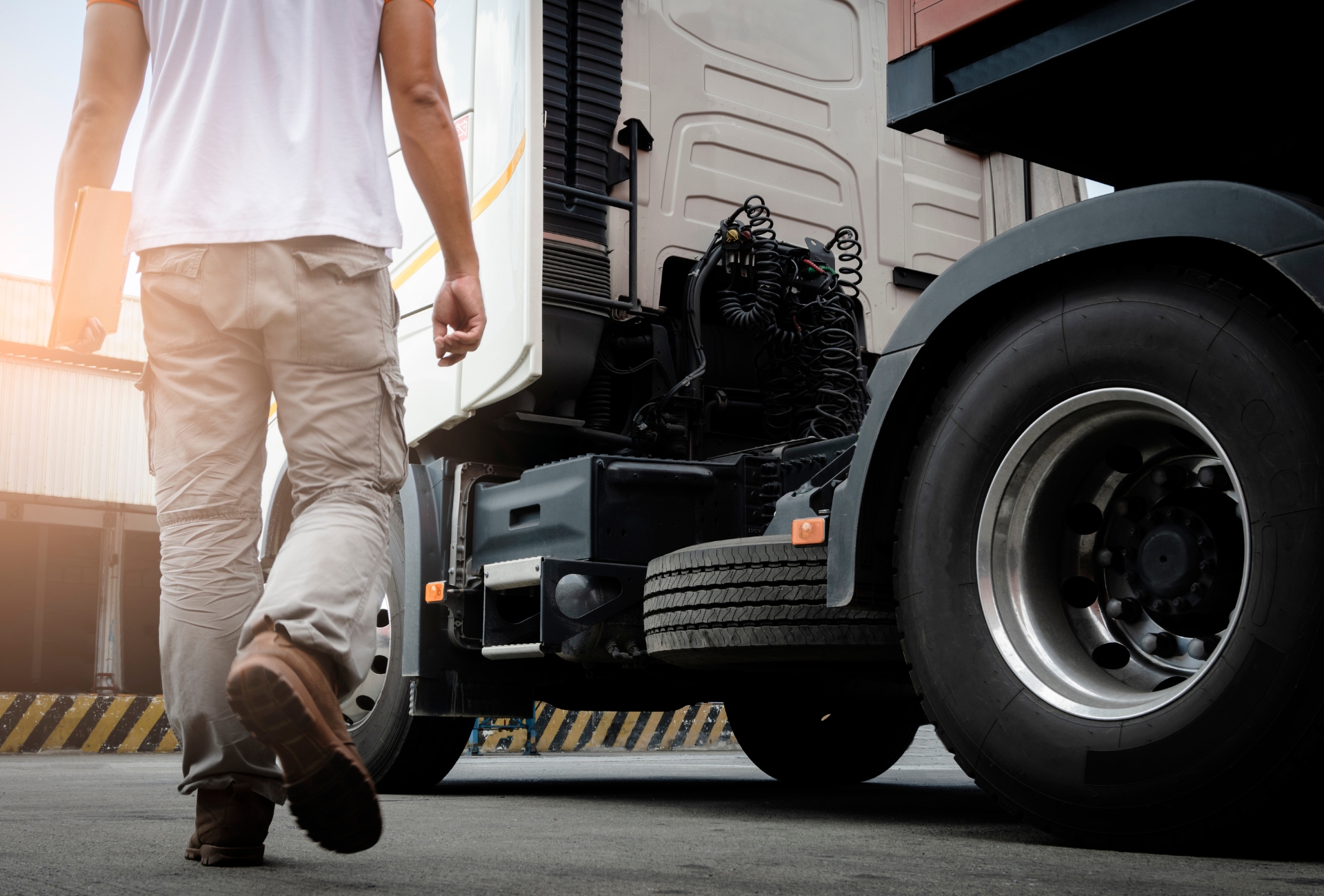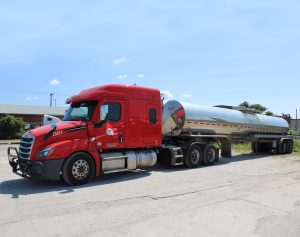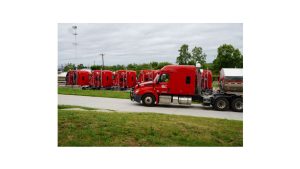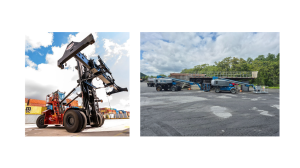One of the common questions potential drivers ask about long-haul trucking is whether they need to own their truck. The short answer is no, but several options and considerations can impact a career in over-the-road (OTR) trucking.
Company Driver vs. Owner Operator
The trucking industry offers two primary career paths: a company driver or an owner operator.
Company Drivers do not need to own their trucks. They are employed by a trucking company, which provides the truck and covers maintenance, insurance, and other operating expenses. This arrangement allows drivers to focus solely on driving without the financial burden or responsibility of maintaining a vehicle. It’s an excellent way for new drivers to enter the industry, as it requires less initial investment and provides more stability in terms of regular income and benefits.
On the other hand, owner operators own trucks and run their businesses independently. While this route offers the potential for higher income, it also involves significant upfront costs (purchasing a truck) and ongoing expenses (maintenance, insurance, fuel, etc.). Owner operators have the freedom to choose their routes and contracts but also face the risks and responsibilities of business ownership, including finding and managing their loads.
Pros and Cons
Company Driver:
- Pros: No need to own a truck, no responsibility for maintenance costs, steady paycheck, benefits like health insurance and retirement plans.
- Cons: Less flexibility in choosing routes and schedules, potentially lower income than owner operators.
Owner Operator:
- Pros: Higher potential income, more control over routes and schedules, can build equity in a truck.
- Cons: Significant initial investment, responsible for maintenance and operating costs, variable income.
Leasing Programs
Leasing programs are an option for those interested in becoming owner-operated truck drivers without the initial capital to purchase a truck. Many trucking companies offer lease-to-own programs that allow drivers to lease the truck. It also has the option to buy the truck at the end of the lease term. These programs can be appealing because they often require no down payment and include maintenance packages. However, drivers should carefully consider the terms and costs associated with leasing agreements, as they can vary widely and may impact profitability.
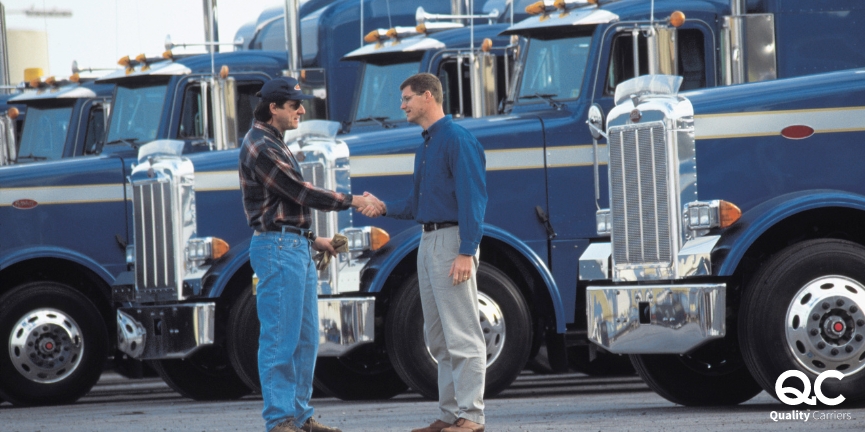
While this can be a pathway to becoming an owner operator truck driver, it’s essential to consider the terms carefully:
- Monthly Payments: These can be high, and if you’re not driving enough, they can quickly become unaffordable.
- Maintenance and Repairs: You may be responsible for these costs depending on the lease terms.
- Contract Terms: Some contracts may be restrictive and not offer the benefits of actual ownership until the lease is up.
Getting Started
Obtaining a commercial driver’s license (CDL) is the first step for those looking to start a career in OTR trucking. After acquiring a CDL, you can start as a company driver, which is generally recommended for those new to the industry. This path provides an opportunity to gain experience and understand the industry with less financial risk.
Explore Owner Operator Truck Driver Opportunities at Quality Carriers
Are you ready to start your career in a new direction? Quality Carriers is looking for dedicated individuals to join our team of professional owner operator truck drivers. Whether you’re a seasoned driver or just starting out, we have opportunities that can fit your skills and needs.
Why Drive with Quality Carriers?
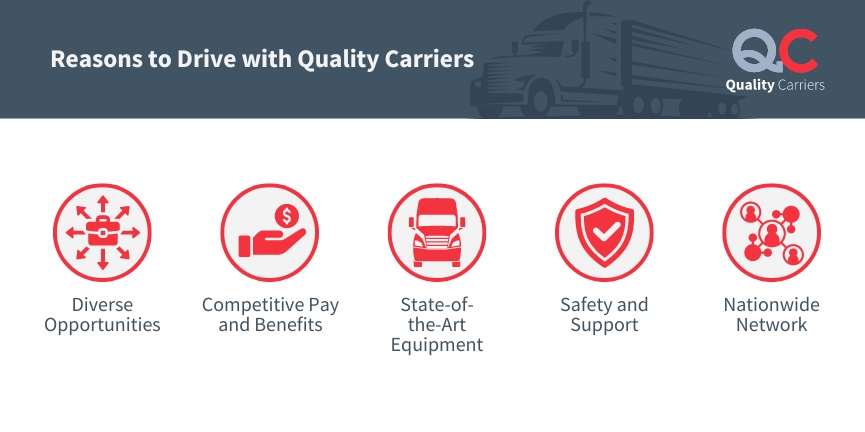
- Diverse Opportunities: We have positions for company drivers, owner operators, and those interested in lease purchase programs. Our diverse options mean you can find the path that fits your truck career goals and lifestyle.
- Competitive Pay and Benefits: Quality Carriers ensure that our drivers are rewarded for their hard work. We offer competitive pay scales, comprehensive health benefits, and retirement plans to secure your future.
- State-of-the-Art Equipment: Our fleet is regularly updated with the latest trucking technology, ensuring you have reliable and efficient tools to do your job. This not only makes your work safer but also more enjoyable.
- Safety and Support: We prioritize the safety of our truck drivers. You’ll receive continuous training and support to ensure you are confident on the road and can easily handle any situation.
- Nationwide Network: With routes and terminals across the country, you can find opportunities that keep you close to home or get you out exploring new territories—whichever suits you best.
How to Apply
Starting your journey with Quality Carriers is simple. Visit our careers page, find a suitable position, and fill out an application form. If you’re looking for a place where you can make a difference and move forward in your driving career, look no further than Quality Carriers.
Get Behind the Wheel
Take advantage of the opportunity to drive for one of the top carriers in the industry. Apply today and start your journey with Quality Carriers, where your dedication and skills will be recognized and rewarded. Drive with us and take your career to the next level!
Conclusion
Owning a truck is not a requirement for becoming an OTR driver, but it is an option with its own set of risks and rewards. Whether you choose to be a company driver or an owner operator, each has advantages, depending on your career goals, financial situation, and risk appetite. Understanding these paths and your priorities will help you make an informed decision that suits your long-term career ambitions in the trucking industry.
FAQs
Do I need to buy a truck to start driving for OTR?
You do not need to buy a truck to start as an OTR driver. Many truck drivers begin their careers as company drivers, where the company provides the truck.
Can I still become a truck driver if I can’t afford a truck?
Yes, you can become a owner operator truck driver without owning a truck by working as a company driver. This allows you to drive without the financial burden of owning and maintaining a truck.
What are the challenges faced by owner operators?
Challenges include a significant financial investment, higher risk, and the responsibility for all aspects of the business, such as maintenance, insurance, and securing loads.
